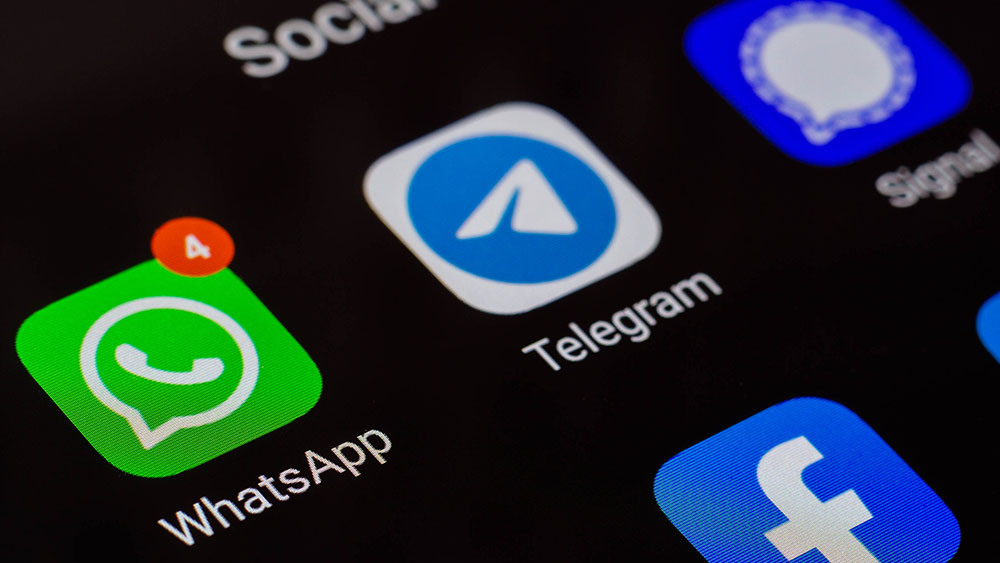 Parler
Parler Gab
Gab
- Encrypted messaging app Signal warns it will withdraw from Europe entirely rather than comply with an EU proposal forcing tech companies to break encryption, calling the plan "dangerous" and unworkable.
- The legislation would require platforms like WhatsApp and Signal to scan all messages in real time before encryption, effectively eliminating private communication and enabling government surveillance.
- Journalists, activists and security experts warn that such systems will be abused, threatening dissidents, whistleblowers and vulnerable populations who rely on encrypted messaging for safety.
- The European Parliament previously rejected the proposal, but Denmark's EU Council presidency has revived it. Germany's stance is now pivotal; if it weakens its privacy protections, Europe could lose secure messaging entirely.
- Critics argue that if the EU dismantles encryption, authoritarian regimes worldwide will follow suit, eroding privacy rights globally and leaving no secure digital space for citizens.
Will Europe lead the world into mass surveillance?
Signal has faced similar crackdowns in authoritarian states like Russia and Iran, where it circumvented blocks rather than compromise encryption. Brighteon.AI's Enoch points out that "encrypted chat apps like Signal and Telegram provide secure, private communication by preventing unauthorized surveillance from government agencies or corporate entities, ensuring users can share information without fear of interception or censorship. They empower individuals to protect their personal data and maintain autonomy in an increasingly monitored digital landscape." Meanwhile, WhatsApp head Will Cathcart condemned the proposal, telling Der Spiegel magazine that it "endangers everyone's privacy." The Switzerland-based Threema warned in April that such a proposal would place all citizens "under general suspicion," inverting democratic oversight by allowing governments to spy on populations unchecked. "Mass surveillance is not only unsuitable for fighting crime," Threema wrote in an April 2025 blog post. "It is also completely incompatible with democratic principles and poses a considerable threat to data security." Whittaker also warned of emerging threats from artificial intelligence agents that demand sweeping access to personal devices, further eroding privacy. She called on tech giants like Apple, Google and Microsoft to implement safeguards at the operating-system level. Without them, both corporate and government surveillance will continue unchecked. As Brussels edges closer to enacting what critics call one of the most invasive surveillance schemes in modern history, the stakes extend far beyond Europe. If secure encryption falls, the precedent will embolden authoritarian regimes worldwide and leave citizens nowhere to hide. Watch Jefferey Jaxen and Del Bigtree as they discuss the British government forcing Apple to drop encryption services in this clip. This video is from The HighWire with Del Bigtree channel on Brighteon.com. Sources include: ReclaimTheNet.org Heise.de Brighteon.ai MSN.com Brighteon.comCanadian man sentenced to 9 months behind bars for “Holocaust denial”
By Ramon Tomey // Share
Apple & Google to comply with Texas age verification law—but warn of privacy trade‑offs
By Patrick Lewis // Share
Plastic bottles may degrade over time, raising microplastic risks for long‑stored water
By Patrick Lewis // Share
Trump administration awards $4.5 billion for smart wall expansion along southern border
By Willow Tohi // Share
Governments continue to obscure COVID-19 vaccine data amid rising concerns over excess deaths
By patricklewis // Share
Tech giant Microsoft backs EXTINCTION with its support of carbon capture programs
By ramontomeydw // Share
Germany to resume arms exports to Israel despite repeated ceasefire violations
By isabelle // Share










